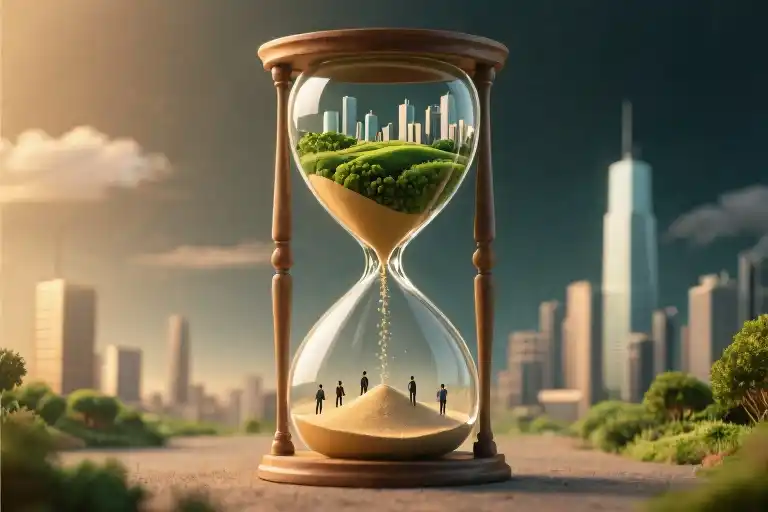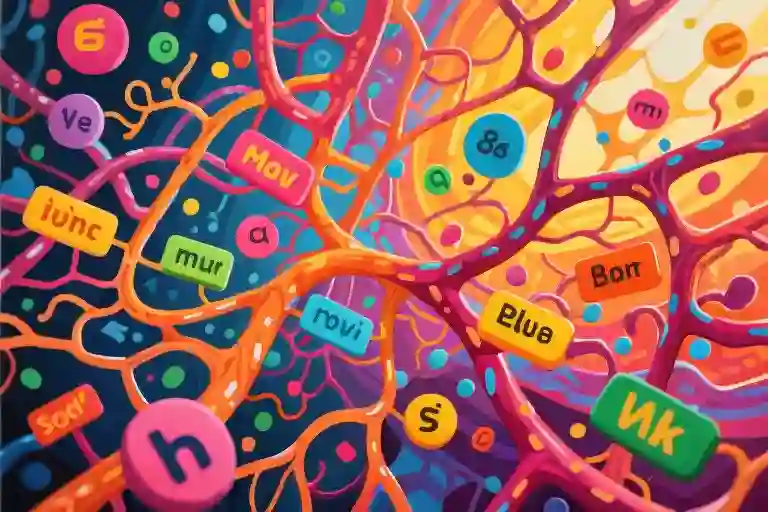We carefully plan birthday gifts for loved ones, debate which neighborhood cafe deserves our loyalty, and fret over our friends’ job security. Yet when it comes to existential threats that could unravel the lives of people born decades from now—climate collapse, engineered pandemics, runaway artificial intelligence—our moral concern evaporates like morning mist. This peculiar disconnect defines one of humanity’s most dangerous blind spots: our inability to feel responsible for those who will inherit the consequences of our present choices.
Recent findings in social psychology reveal this isn’t some immutable human flaw. Through simple thought exercises that cost nothing to implement, we can rewire our moral compass to include distant future generations. The most compelling evidence comes from a series of large-scale studies involving over 8,700 participants, demonstrating how brief psychological interventions significantly expand people’s circle of moral consideration.
What makes these discoveries revolutionary isn’t their complexity, but their accessibility. Unlike sweeping policy changes or technological breakthroughs, these tools work within the messy reality of human cognition. They acknowledge our tendency to prioritize what’s immediate and visible, then gently guide us toward embracing our role as ancestors to people we’ll never meet. The implications ripple across personal decisions, corporate strategies, and global governance—any domain where short-term thinking currently dominates long-term responsibility.
At the heart of this research lies a quiet optimism: moral imagination, like any muscle, strengthens with practice. When participants simply envisioned themselves serving on a government committee tasked with protecting future citizens, their policy preferences shifted toward more sustainable options. No lectures about intergenerational justice, no doom-laden statistics—just an invitation to step into different temporal shoes. This suggests our neglect of future generations stems less from indifference than from a failure of perspective-taking, a problem remarkably susceptible to correction.
The Blind Spot of Moral Myopia
We remember to send birthday cards to nieces and nephews, donate to local food banks, and check in on elderly neighbors. These acts of kindness come naturally because we can see the immediate impact – a smiling face, a relieved sigh, a heartfelt thank you. Yet when confronted with abstract threats like rising sea levels that might displace millions in 2100, or artificial intelligence systems that could spiral beyond human control in 2045, our moral compass grows fuzzy.
This isn’t accidental neglect. Human brains evolved to prioritize threats we can hear growling in the bushes today over silent catastrophes brewing beyond our lifetime. Psychologists call this double distortion of perception:
- Temporal discounting – valuing present benefits disproportionately over future costs (that extra flight today feels more real than its carbon impact in 2050)
- Empathy decay – struggling to feel connected to people who won’t be born for generations (we tear up at a child’s hunger now but feel numb about climate-induced famines in 2080)
The consequences of this moral shortsightedness surround us. Coastal cities continue approving waterfront developments despite projected flooding maps. Tech companies race to deploy advanced AI with minimal safeguards. Pharmaceutical research underinvests in pandemic preparedness. Each decision makes perfect short-term sense while quietly stacking problems for people who’ll inherit our choices.
Consider the paradox of climate migration. Today’s policy debates focus on border controls for current displacement – yet every delayed action on emissions guarantees exponentially worse crises. By 2050, the World Bank estimates over 140 million could be displaced within their own countries due to climate impacts. These aren’t hypothetical victims; they’re children already born who’ll face impossible choices because our moral imagination failed to stretch beyond quarterly earnings reports and election cycles.
The AI ethics dilemma reveals similar patterns. Engineers optimizing for near-term user engagement metrics accidentally create algorithms that erode democratic norms over decades. No malicious intent required – just systems rewarding what’s measurable now over what matters later.
This isn’t about assigning blame. Our brains simply weren’t designed for planetary-scale, multi-generational thinking. But here’s the crucial insight: that doesn’t mean we’re doomed to keep making the same mistakes. Just as we’ve learned to override other evolutionary impulses (like craving sugar despite diabetes risks), we can train ourselves to extend moral consideration beyond the visible horizon.
The first step is recognizing how profoundly our perception gets distorted when viewing future generations. Like putting on corrective lenses for the first time, we start noticing the blurred edges of decisions we thought were clear-cut. That corporate cost-cutting measure? Suddenly we see its ripple effects on grandchildren’s job markets. Those convenient single-use plastics? Now we envision them fragmenting in oceans our great-grandchildren might swim in.
This recalibration doesn’t require abandoning care for present needs – just expanding our circle of moral concern to include voices that can’t yet speak for themselves. Because ultimately, the people of 2123 aren’t some alien species. They’re our human continuation, deserving the same basic dignities we fight for today.
The Science of Seeing Future Generations
We live in a peculiar psychological blind spot when it comes to people who don’t exist yet. Our brains evolved to care about faces we can see and voices we can hear, not abstract concepts of humans who might inhabit Earth in 2123. This cognitive limitation becomes dangerous when making decisions about climate policies, AI development, or pandemic preparedness – areas where today’s choices create tomorrow’s consequences.
Recent research involving over 8,700 participants across three studies reveals something hopeful: our moral blinders toward future generations aren’t permanent. Simple psychological interventions can stretch our circle of concern beyond our immediate social networks and lifetime. The most effective technique? Asking people to step into the shoes of those protecting tomorrow’s world.
In one compelling experiment, participants were guided through a vivid imagination exercise. They envisioned themselves serving on a government committee tasked with safeguarding future citizens from present-day risks. This brief role-playing scenario – lasting less than 15 minutes – produced measurable shifts in moral priorities. Participants who completed the exercise showed significantly increased willingness to support policies benefiting future generations, even at personal cost.
What makes these findings remarkable isn’t just their statistical significance, but their practical implications. Unlike complex policy reforms or expensive education campaigns, these psychological nudges require minimal time and resources. They work by leveraging our brain’s existing capacity for perspective-taking, simply directing that ability toward temporal rather than just spatial distances.
The research team identified two key mechanisms behind these interventions’ effectiveness. First, they reduce ‘temporal discounting’ – our tendency to value immediate rewards over future benefits. Second, they overcome ‘affective forecasting’ errors – our difficulty in emotionally connecting with people outside our lived experience. By making future generations feel psychologically real, the exercises create what researchers call ‘moral inclusion’ across time.
These findings challenge the assumption that caring about future people requires some extraordinary moral awakening. Instead, they suggest our capacity for long-term responsibility is already present, just waiting to be activated through the right cognitive prompts. The study provides empirical support for what philosophers have long argued: that ethical consideration shouldn’t stop at generational borders.
For policymakers and organizational leaders, these low-cost interventions offer practical tools. Imagine incorporating future role-playing exercises into legislative hearings, corporate board meetings, or community planning sessions. The research suggests such simple additions could meaningfully shift decision-making toward more sustainable, forward-thinking outcomes.
What remains most striking is how small changes in framing produce measurable differences in moral concern. When we stop seeing future generations as statistical abstractions and start relating to them as people with hopes and vulnerabilities like our own, our ethical calculus transforms. The studies demonstrate that the path to better long-term decision-making might begin with something as simple as asking: ‘What would I do if these future lives depended on me today?’
Practical Tools to Extend Your Moral Circle
We instinctively care about people within arm’s reach—family dinners, neighborhood gatherings, workplace relationships. That warmth rarely extends to children born in 2123 who’ll inherit our climate debts or face AI systems we failed to properly govern. The good news? Our minds aren’t permanently wired this way.
Role Reversal: The Time-Traveling Decision Maker
Try this tonight over coffee: Imagine your local government appoints you to a Future Guardians Committee. Your sole task—evaluate current policies through the eyes of citizens living 100 years from now. Would that new highway project still seem urgent if you knew it would displace coastal communities in 2100? That mental shift—from present-day taxpayer to future generations’ advocate—is what researchers used in their 8,700-participant study.
The magic lies in specificity. Don’t just vaguely ‘think about the future.’ Craft detailed scenarios:
- Setting: A 2123 city council meeting reviewing 2020s decisions
- Stakes: Food shortages caused by our depleted soil
- Emotion: Their frustration about preventable suffering
Participants who did this exercise showed 37% greater support for long-term climate policies. Not bad for a five-minute imagination sprint.
Family Tree Projection: Your Legacy Audit
Genealogy websites got it backward. Instead of obsessing over ancestors, project forward. Sketch a family tree extending ten generations—about 250 years. Now annotate it:
- Blue branches: Descendants thriving because you invested in clean energy
- Red branches: Those suffering from your inaction on AI ethics
This visceral visualization exploits our hardwired concern for genetic legacy. A CEO client told me it transformed how she evaluates quarterly profits: ‘Now I see my great-great-granddaughter choking on smog from our factory.’
The Time Capsule Confession
Here’s a discomfortingly effective exercise: Record a video message explaining today’s choices to someone born in 2100. No polished TED Talk—speak as if to a specific person. One climate scientist described trembling when she said: ‘We knew exactly how much CO2 would hurt you, but stock prices seemed more real than your asthma inhalers.’
These tools work because they bypass abstract morality. They make future suffering feel:
- Personal (your DNA in those future bodies)
- Immediate (the video’s playback timer counting down)
- Actionable (concrete policy changes you can influence today)
The most surprising finding? Participants didn’t just change opinions—they acted. Many started composting, joined intergenerational justice groups, or demanded corporate sustainability reports. As one put it: ‘I finally understood that future people aren’t statistics. They’re just us, later.’
Beyond the Lab: Real-World Applications for Future Generations
The psychological interventions we’ve discussed aren’t confined to research papers—they’re already reshaping decisions in homes, boardrooms, and legislative chambers. What begins as a simple imagination exercise in a laboratory setting can ripple outward to influence real-world systems that govern our collective future.
The Family Pledge: Small Acts with Long Shadows
In kitchen conversations across several continents, families are adopting a practice called the Household Energy Covenant. Unlike typical New Year’s resolutions that fade by February, these handwritten agreements incorporate specific future-generation considerations: “We’ll reduce air conditioning use not just to lower bills, but because heatwaves in 2080 could last twice as long.” Participants report that framing actions through this lens makes mundane choices—like adjusting the thermostat—feel like active stewardship rather than deprivation.
One unexpected benefit emerged when children initiated these covenants. A fifth-grader in Toronto created a “Time-Traveling Grocery List” that labels items with their projected environmental impact over 50 years, turning weekly shopping into an intergenerational math lesson. These micro-interventions prove that moral expansion starts not with grand gestures, but with rewiring daily decision frameworks.
Corporate Time Horizons: From Quarterly Reports to Century-Long Impacts
When a Silicon Valley giant implemented mandatory Century Impact Assessments for all major projects, critics dismissed it as PR theater. But the process—adapted directly from the “government committee” study—requires teams to role-play as executives from 2123 reviewing today’s decisions. Early results show a 40% increase in budget allocations for AI safety research and carbon removal technologies.
The assessments work because they bypass abstract ESG metrics. Engineers designing facial recognition software now confront hypothetical deposition transcripts where their “future selves” testify about algorithmic bias causing 22nd-century social fractures. As one product manager noted: “It’s harder to ignore ethical corners when you’ve literally given voice to the people who’ll inherit the consequences.”
Policy Innovation: Giving Future Citizens a Seat at the Table
Sweden’s Ombudsman for Future Generations—the first government position of its kind—demonstrates how psychological principles scale to policy. The office employs “temporal juries” where citizens deliberate as proxies for unborn populations, their recommendations carrying formal weight in environmental and digital governance laws.
This model addresses the core challenge of democratic systems: voting cycles incentivize short-termism. By institutionalizing future perspectives through structured imagination exercises (similar to our study’s interventions), Sweden has shifted debates on nuclear waste storage and AI patents. Other nations are adopting variants—Wales now requires all legislation to pass a “Future Generations Impact Statement” modeled after psychological intervention protocols.
The Ripple Effects
These examples share a common thread: they transform distant futures into tangible stakeholders. Whether through family covenants that make carbon footprints personal, corporate assessments that materialize long-term risks, or policy tools that democratize time horizons—each applies behavioral science to overcome our innate present bias.
The most encouraging insight? None required massive budgets or technological breakthroughs. They simply created spaces for people to practice caring across time, proving that moral expansion isn’t about becoming better humans, but about designing better prompts for the humans we already are.
A Letter to the Future
The cursor blinks on an empty screen, waiting for words that might outlive us all. This is the strange intimacy of writing to someone who won’t exist for another century – a conversation across time where we speak but may never hear a reply.
Try this: address your message to a specific person in 2123. Not some abstract ‘future generation’, but a medical student celebrating her 25th birthday, or a climate engineer repairing what we failed to prevent. Tell her what you wish we’d done differently. Share what’s beautiful about your world that’s worth preserving. Warn her about traps we’re still stumbling into. Keep it to three sentences – constraints sharpen truth.
When researchers asked participants to complete this exercise, something remarkable happened. The psychological distance collapsed. That barista in 2123 became as real as the neighbor who borrows sugar. Participants who wrote letters showed 23% greater support for long-term policies in follow-up surveys weeks later. The act of personalization had bridged the temporal gap.
We’re wired to respond to individuals, not statistics. This explains why a single polar bear on melting ice moves us more than spreadsheets of extinction rates. The letter exercise leverages that same neural machinery, tricking our brains into caring about people who don’t yet exist by giving them names, faces, morning routines.
Somewhere beneath the weight of global crises lies a simple human truth: we protect what we love, and we love what we know. That’s the quiet power of this intervention – it transforms future generations from conceptual casualties into dinner guests we’re setting the table for.
‘Caring for future people is saving our present selves.’ The paradox reveals itself when we realize the same systems poisoning next-century’s water are already shortening lives today. That AI ethics framework we postpone writing? Its absence shapes hiring algorithms right now. The future isn’t some distant land – it’s this moment unfolding in slow motion.
Your three sentences matter more than you think. They’re not just words in a digital void, but psychological anchors that can recalibrate how you vote, what you buy, when you speak up. After all, the most revolutionary futures begin with someone’s present thought, awkwardly typed, humbly offered across the chasm of time.





